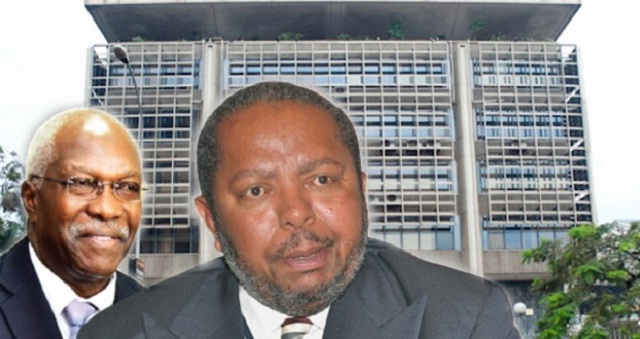
Auditor General spills secrets of Coop Bank, Greenland Bank
Kampala, Uganda | HAGGAI MATSIKO | On March.23, Auditor General (AG) John Muwanga wrote a confidential note to the Governor of the Central Bank, Emmanuel TumusiimeMutebile.
The note a copy of which The Independent has seen is titled Draft report of the Special Audit on the Defunct Banks. Muwanga was directed by the Parliamentary Committee on Commissions, Statutory Authorities and State Enterprises (COSASE) to undertake a special audit on the closure of commercial banks by Bank of Ugandafollowing the controversy surrounding the takeover and sale of Crane Bank to DFCU last year.The Independenthas seen the report,which the AG is preparing to submit to parliament.
“I shall be pleased to discuss the matters mentioned in this report with you at Audit House on 4th April 2018,” Muwanga wrote, “Meanwhile, I await your responses which should reach this office by 30th March 2018.”
The Independent can exclusively report that in this note, the AG raises a number of red flags over the manner in which the central bank has liquidated seven banks since 1993.
The seven are:Teffe, Greenland Bank; formerly owned by the late Sulaiman Kigundu, National Bank of Commerce (NBC), formerly owned by tycoon Amos Nzeyi, former Prime Minister AmamaMbabazi, among others, International Bank, formerly owned by the Emma Kato family, Cooperative Bank, Global Trust Bank, and Crane Bank.
High up amongst the concerns raised, is that BoU sold customer loans of defunct banks at less than the value of the secured loans.
In December 2007, for example, BoU signed an agreement with Nile River Acquisition Company to sell the debt portfolio of Greenland, ICB and Cooperative banks at USD.S.25 million or Shs.8.9billion.
The debt portfolio comprised secured, poorly secured, unsecured and unknown loans amounting to Shs135 billion.
Of this, was a portfolio of properly secured loans of Shs34 billion, which had valid, legal or equitable mortgage on the real property and were supported with proper legal documentation.
The sales price offered of Shs8.898 billion represented 26 percent of the total secured loan portfolio and 7 percent of the total loan portfolio.
The AG notes that through interviews, the Director Commercial Banking indicated that the sale of the acquired debt portfolio was undertaken through a prescribed procurement process.
The process required that the loan portfolio is advertised, bids received, evaluated and awarded to the best evaluated bidder.
When the AG requested for the bidding documentation to enable him to evaluatethe process under which the best-evaluated bidder was selected, this was not provided.
“I was not able to establish whether this sale option was the best option available for the BOU to realise the maximum amount possible from the sale of the assets in line with section 33(5}(d) of FIS 1993,” the AG writes.
Failure to maximize the recovery from the assets limited the liquidator’s capacity to clear outstanding liabilities amounting to Shs147 billion, the AG reveals.
“Management should explain the delay and provide criteria used to sell the loans at 7% of the total loan value and 26% of the secured loans,” the AG writes.
He adds: “Management should in future ensure that assets of the banks are recovered/ sold at an appropriate time in order to maximise the recovery amount of the assets.”
Apart from the three banks, the AG also raises red flags about the sale of Global Trust Bank (GTB) assets. GTB was closed in July 2014 due to undercapitalisation and corporate governance weaknesses among other reasons.
When the central bank closes a bank, it is required to prepare several reports. One of these reports is called the statement of affairs. It provides an overview of the bank’s assets and liabilities.
 The Independent Uganda: You get the Truth we Pay the Price
The Independent Uganda: You get the Truth we Pay the Price


